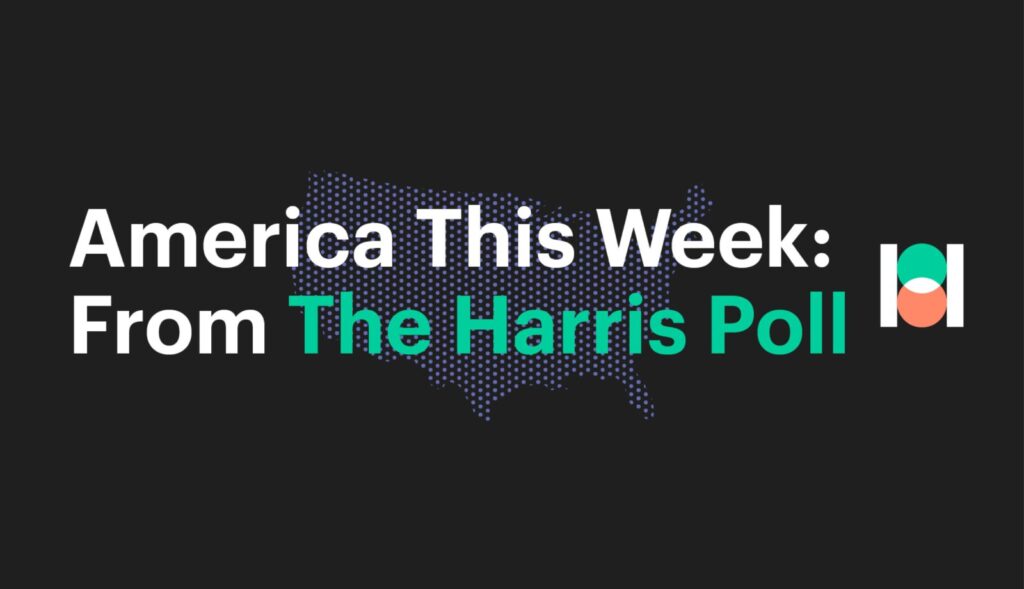Brief • 3 min Read

In a survey conducted on behalf of Ad Age, the Harris Poll found that consumers’ comfort with brands collecting their personal data is middling, even if it’s commonplace for most brands and companies. As a result, those that help consumers learn how their personal data is being used – and more importantly, how it’s being protected – stand to gain favor.
Consumers are concerned about personal data collection, but most aren’t taking steps to avoid it.
Overall, 70% of US adults are at least somewhat concerned about personalized internet ads, but only 32% of opted out of seeing them on social media apps. Perhaps surprisingly, Gen Z is the least concerned about personalized ads (53% of Gen Z vs 70% of US adults), but they’re no more or less likely than the general population to opt out (33% of Gen Z vs 32% of US adults). Similarly, 72% of smartphone users are at least somewhat uncomfortable with the detailed level of personal data that mobile apps collect, while only 29% of US adults have researched and understand how the data collected by apps on their phone is used.
Diverging from trends in attitudes toward data privacy that are seen in their younger cohorts, Millennial smartphone users are no more or less comfortable with the level of personal information collected by apps on their phone, but they’re significantly more likely to be informed about how their data is used. Nearly three-quarters (71%) of Millennial smartphone users are at least somewhat uncomfortable with the level of data collected by apps on their phone (vs 61% of Gen Z smartphone users and 72% of all smartphone users). However, 42% of Millennials have done research to understand how the data collected by apps on their phone is used, compared to 31% of Gen Z and 29% of all US adults.
Consumer comfort with online data collection is low, but Apple users tend to feel better than most.
Only 39% of US adults are at least somewhat comfortable with their personal data being collected online. iPhone users – particularly those that have updated their phone’s operating system to iOS 14.5 – are even more likely to feel comfortable with their personal data being collected online; approximately half of all iPhone users (45%, vs 52% of those that have updated their phone’s operating system to iOS 14.5) are at least somewhat comfortable with their data being collected online. Given Apple’s continued focus on data transparency, this is somewhat unsurprising.
Pop-up messages – even if they’re offering consumers information about their data privacy – aren’t popular.
Despite overarching patterns of data privacy concerns, 63% of US adults still have an unfavorable opinion of mobile pop-ups from apps, websites, or their phone’s operating system that provide transparency on personal data collection. Given that 79% of smartphone users find pop-ups form mobile apps (e.g., push notifications, in-app ads) too intrusive, it’s likely that the disruption of a pop-up overshadows the pop-up’s content. Compared to users of other smartphones, iPhone users are no more or less likely to find pop-ups intrusive (79% of smartphone users, regardless of the brand used). However, iPhone users are more likely to have a favorable opinion of pop-ups that provide transparency on data collection (43% of iPhone users vs 37% of other smartphone users.)
Yet again, Millennials appear to have a security-focused mindset. While they’re no more or less likely than the general population to find mobile pop-ups intrusive, more than half have a favorable attitude toward pop-ups providing information on data collection. Gen Z, on the other hand, shows the opposite tendencies. More than three-quarters (77%) of Millennial smartphone users, compared to only 61% of Gen Z smartphone users find mobile pop-ups (e.g., push notifications, in-app ads) too intrusive. At the same time, 55% of Millennials (vs 40% of Gen Z) have at least a somewhat favorable opinion of pop-ups that provide transparency about personal data collection.
Methodology
This survey was conducted online within the United States by The Harris Poll on behalf of Ad Age during April 30 – May 3, 2021, among 1,061 U.S. adults ages 18 and older with additional branding insights provided by QuestBrand. This online survey is not based on a probability sample and therefore no estimate of theoretical sampling error can be calculated. Figures for age, sex, race/ethnicity, education, region and household income were weighted where necessary to bring them into line with their actual proportions in the population. Propensity score weighting was used to adjust for respondents’ propensity to be online.
Subscribe for more Insights
Subscribe to our newsletter for the latest trends in business, politics, culture, and more.
Download the Data
Get the full data tabs for this survey conducted online within the United States by The Harris Poll on behalf of Ad Age among 1,061 U.S. adults ages 18 and older with additional branding insights provided by Harris Brand Platform.
Download
Subscribe for more Insights
Subscribe to our newsletter for the latest trends in business, politics, culture, and more.
Download the Data
Get the full data tabs for this survey conducted online within the United States by The Harris Poll on behalf of Ad Age among 1,061 U.S. adults ages 18 and older with additional branding insights provided by Harris Brand Platform.
DownloadRelated Content








